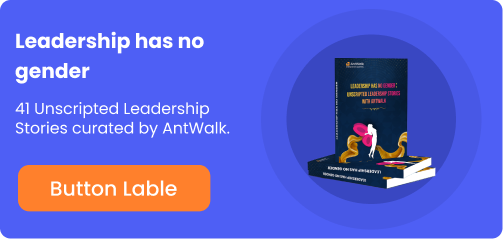Have you ever wondered why businesses are picky while filling out HR management vacancies? Do you think that the HR department works only for the hiring and firing of people?
Well, if that’s the case, there’s so much for you to explore.
The introduction of AI technology into the corporate setting has transformed the way every business and its department function. In today’s world, AI is reliably emerging as the most promising arena for workplace and workforce management.
The HR landscape is undergoing a profound transformation, driven by the relentless surge of technology and the transformative power of artificial intelligence (AI).
Traditionally confined to administrative tasks and employee relations, Human resource management is now poised to emerge as a strategic powerhouse, shaping business decisions and propelling organizations towards unprecedented success.
But what exactly does this mean for the future of HR professionals? How can they adapt and thrive in this rapidly evolving landscape?
From the application of adding efficiency and effectiveness in the department’s management and working to strategic contribution by leveraging data-driven insights and automation, human resources management (HR) is becoming an essential component of any business, ensuring they bridge the gap between employees and management in a more advanced and strategic way.
But the collaboration between AI and HR is not as easy as it sounds. There are different thoughts related to this merger. The most common one is that it is too early to decide that all businesses are at that stage to step into that zone where their workforce relies on AI and thus, ensure effective strategies that foster business excellence.
We had the great pleasure of speaking with Abhik Sinha, Senior Vice President & Head – Business HR (Asset Finance) at Equitas Small Finance Bank on the future of HR and the impact of AI in the processes.
Abhik believes that HR professionals must be deeply acquainted with the business and be adaptive towards AI trends. This is exactly what we have encapsulated in this blog.

The Crucial role of HR in shaping business strategy
HR management plays a crucial role in shaping business strategy by aligning human capital with organizational goals. They identify talent gaps, develop recruitment strategies, and ensure a diverse workforce.
HR also facilitates communication between management and employees, promoting a culture of transparency and trust. With their deep understanding of the organization’s people and their skills, HR professionals can provide valuable insights for effective decision-making and strategic planning.
As mentioned in a Forbes Advisor article discussing the top HR trends for 2023, HR leaders are prioritizing the development of their management team’s effectiveness as part of their strategy to improve the future of work.
Your foot in the door: How to break into the business world
According to a recent report by PwC, 68% of CEOs believe that HR is critical to their business strategy.
This statistic highlights the increasing importance of HR professionals in the corporate world. To be a part of the business world, HR professionals should focus on the following strategies:
- Understanding the organization’s goals and industry trends
- Building relationships with key stakeholders and investing in professional development
- Embracing technology and AI and fostering a culture of innovation and adaptability

In today’s HR realm, professionals may find themselves facing new challenges and unfamiliar territories. But with the right mindset and tools, you can boost your confidence and tackle these challenges head-on. Take the time to develop your skills, seek guidance from mentors and peers, and stay updated on industry trends.

The Emerging Impact of AI on Human Resource Processes
Artificial Intelligence in Human resource management is revolutionizing its processes, transforming how tasks are performed and enabling greater efficiency. Among those who say racial and ethnic bias in hiring is a problem, 53% think the problem of bias and unfair treatment based on race and ethnicity will improve with increased use of AI by employers in the hiring process, while much smaller shares (13%) believe AI will make the issue worse.
Embracing AI in HR offers numerous benefits, such as improved efficiency, data-driven business insights, and enhanced employee experiences. AI can automate administrative tasks, such as screening out unqualified candidates (64% of HR professionals report that their companies’ automation or AI tools automatically do this).
Embracing AI in HR – Benefits and Strategies for Implementation
Embracing AI in HR offers numerous benefits, such as improved efficiency, data-driven decision-making, and enhanced employee experiences. AI can automate administrative tasks, such as screening out unqualified candidates (64% of HR professionals report that their companies’ automation or AI tools automatically do this).
Abhik also shares an important AI tool used by his company Equitas Small Finance Bank, which is an HR chatbot called Jinie, once trained; it helps resolve 80% of queries for HRBPs, freeing up HR professionals to focus on strategic initiatives.

AI has the potential to automate many tedious and time-consuming HR tasks, freeing up HR professionals to focus on more strategic initiatives. However, integrating AI into HR processes presents challenges for organizations.
According to a 2023 report by PwC, 79% of HR leaders believe that integrating AI into HR processes is a challenge. Some of the most common challenges include:
- Lack of expertise
- Data privacy and security concerns
- Bias and fairness
- Resistance to change

Despite these challenges, the benefits of integrating AI into HR processes are clear. AI can help HR organizations to improve efficiency and productivity. Additionally, AI can help to create a more personalized and engaging employee experience.
Future Predictions: AI and the Evolution of HR Roles

Artificial intelligence in HR is rapidly transforming the world of work, and HR is no exception. AI is a powerful tool that can help HR achieve business goals and create a more effective and efficient HR function. However, it is important to remember that AI is not a replacement for human judgment and expertise. HR professionals need to carefully consider how to implement AI in their organizations and ensure that it is used responsibly and ethically.
To thrive in the future of HR, HR professionals need to develop new skills and adapt to the changing landscape.
As per Abhik, these are the five key skills that any HR professional should possess, especially the younger generation stepping in to make a mark as an HR professional in the business world:
- Passion for HR: HR is a people-first profession, and it is important to have a genuine interest in helping people and organizations succeed
- Solution-oriented: HR professionals need to be able to identify and solve problems effectively
- Quest to surpass business leaders’ business acumen: HR professionals must understand the business and its goals to develop and implement effective HR strategies
- Customer centricity: HR professionals need to be focused on meeting the needs of their customers, which includes both employees and business leaders
- Empathy: HR professionals need to be able to understand and relate to the needs and feelings of others
He beautifully articulated through the thoughts of his mentor that the most important factor in being an HR is that “If you are at least the third name that comes to an employees’ mind when in problem, understand that you have succeeded.”

If mentorship and guidance are what you need to reach your dreams, ping us! AntWalk will help you embrace AI and develop the skills needed to succeed in the digital age and as professionals how you can position yourself as valuable assets to the organization.

Watch the full video here:
Empowering organizations through a Capability-driven Talent Supply Chain, where Capability is the cornerstone for making impactful people decisions.
AntWalk Envisions a world where merit and capability transcend all barriers – race, gender, sexual orientation, language, degree, or years of experience.
Mission:
We help Organizations measure and build Capabilities in line with their Business Priorities. Begin your journey to a more capable organization at AntWalk.














